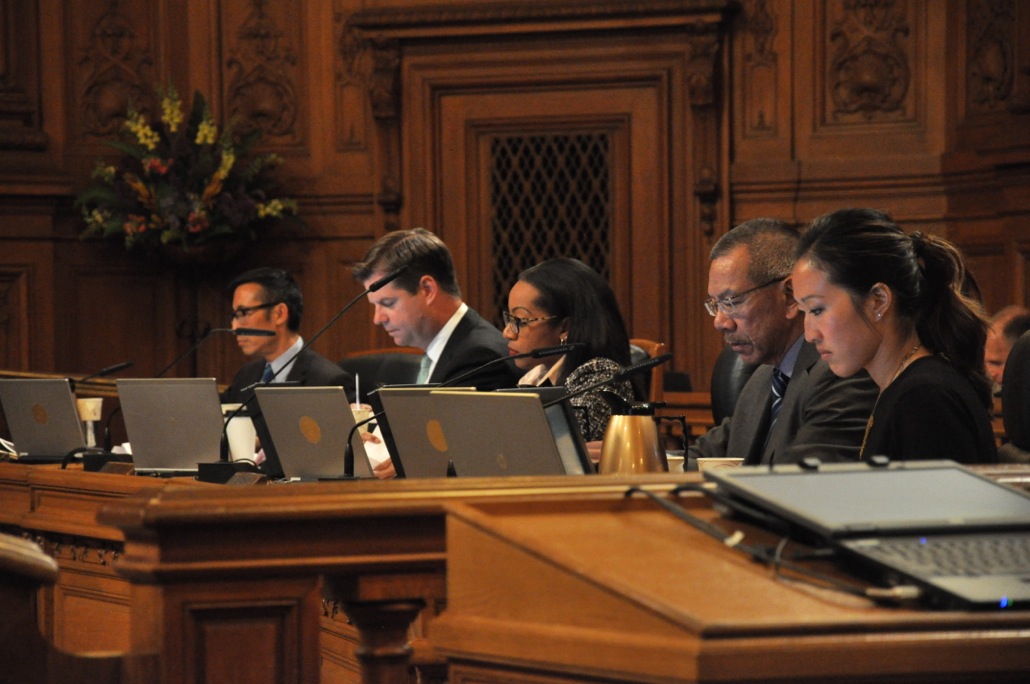San Francisco supervisors are proposing legal changes in response to the escalating costs of residential and commercial properties.
“There is truly a tale of two cities, and many of the people in this city are being displaced,” Supervisor David Campos said. “I don’t know that anyone has a panacea, if there is one, to deal with this crisis. That’s why I think it’s important for us to try different strategies.”
FIGHTING LANDLORD HARASSMENT
On Tuesday, Campos proposed a law that would provide tenants a way to file complaints through the Rent Board if their landlords attempt to push them out illegally. Campos said 80 percent of the people who approach Causa Justa, an organization that provides support for people facing evictions whose name means Just Cause in Spanish, are seeking help from harassment by landlords.
Right now, the only recourse these tenants have is to file suit in court, which can be difficult and expensive, Campos said. Under the proposal, the Rent Board would schedule hearings with an administrative law judge to hear complaints. The judge would provide a case summary for the Rent Board to decide how to proceed, he said.
“There will be additional pieces of legislation that we will be introducing in the very near future, including legislation to deal with the large upswing in Ellis Act evictions,” Campos said. “When you are dealing with a crisis you have to respond like it is a crisis.”
IN-LAWS FOR THE CASTRO
Supervisor Scott Wiener proposed an ordinance to let homeowners in the Castro construct in-law apartments. In-law units are some of the most affordable housing that is not subsidized, Wiener said, adding that small units could help some people in the neighborhood who are at risk of eviction and displacement.
The law would allow buildings with 10 units or fewer to add one additional unit, and buildings with more than 10 units would be allowed to add two more units, Wiener said. The units would be required to fit within the existing space of the building.
“Housing prices are absolutely through the roof,” Wiener said. “We have a lot of long-time residents in the neighborhood who are, in terms of housing, living on the edge. They are at risk of displacement. It is becoming harder and harder for them to stay in the neighborhood.
“It took us many years to dig into this hole,” he added. “And it’s going to take us time to dig out. But one thing that we can do is provide more flexibility in our housing policy.”
SOMA APARTMENTS CONVERTED TO OFFICES
Throughout the South of Market district there are people living in spaces that are zoned as commercial real estate. When the buildings were converted illegally for residential purposes, there was not much demand for commercial property in the area. But property owners now stand to make much more money by returning these buildings to commercial use now that there is not much property available.
Under legislation from Supervisor Jane Kim, property owners in the district would be required to obtain additional permits to make changes to their buildings. This would allow the city to study the loss of residential units throughout SoMa, she said.
“Now that they are considering moving back to the original use, we want to do a pause and survey as to how many residents are impacted by this housing,” Kim said. “We don’t want this to be another source of evictions in the city.”
NONPROFITS STRUGGLING WITH RENT
Kim also called out the need to protect the city’s thousands of nonprofits from being displaced by the rising cost of rent. Commercial rents are now around $50.69 per square foot, up from $39.67 per square foot from two years ago, and the city must act to ensure that these organizations can continue providing services to the community, she said.
“We know that this happened over 10 years ago, and the city actually had a work group then, but did not have to go through on many of the strategies because we unfortunately hit another economic bust cycle,” Kim said. “Understanding that we are in a constant boom-and-bust cycle in San Francisco, we want to re-engage this work group to come up with strategies in terms of what we can do to support our nonprofit workers and organizations that provide invaluable services.”
Kim said she hoped to see a resurrected work group offer recommendations to address the problem by the end of the fiscal year next July.








